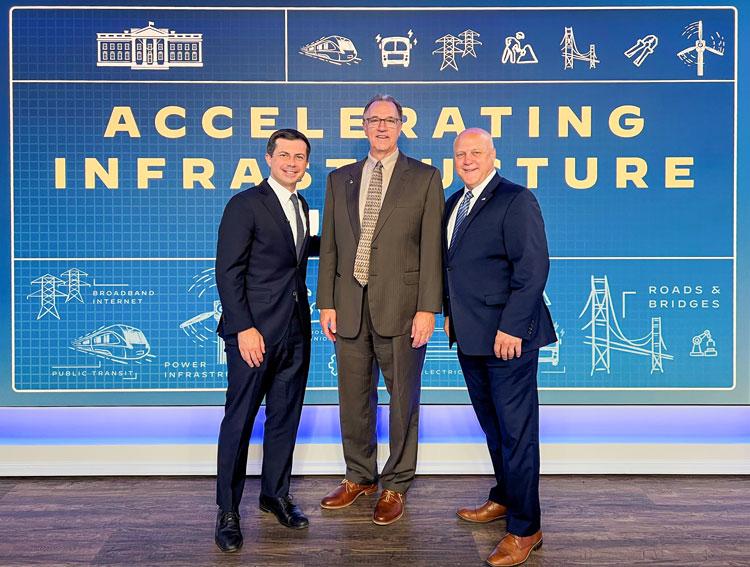“Equality is giving everyone a shoe. Equity is giving everyone a shoe that fits.” Dr. Naheed Dosani said it best.
While equity and equality sound similar and are both processes to achieve fairness, they are distinctly different. Equality refers to treating everyone the same. However, equity recognizes that each person has different circumstances, and so different resources and opportunities may be needed to reach an equal outcome.
Understanding equity is essential to properly address inequity. By digging into the past, we can discover the root causes of disparities and formulate plans to fix them. Studying history allows us to trace the origins of inequities and their cumulative effects on underrepresented groups. This knowledge is vital for creating effective solutions to level the playing field and promote long-term systemic change.
Architecture, engineering, and construction (AEC) firms have a critical role to play when it comes to promoting equity in the built environment. Gannett Fleming is not only committed to learning about the uniqueness of people in its communities and designing and delivering innovative projects to meet those people where they are, but also to developing an inclusive and diverse workforce equipped to create these solutions.
Embedding DEI&B into Our Culture
To represent the communities we serve and foster a collaborative culture rooted in diversity, equity, inclusion, and belonging (DEI&B), Gannett Fleming aims to recruit, develop, and keep a diverse talent pool. We’re invested in challenging the status quo and dismantling biases that create barriers to equity, thus the firm has implemented several diversity and inclusion initiatives:
- Gannett Fleming has a scholarship program for Black and female students pursuing careers in the AEC field, and, in 2023, the program received the highest number of applicants in its history.
- The firm attends career fairs at historically Black colleges and universities, partners with schools that graduate higher than average rates of women and minorities, and posts jobs on military veteran job boards.
- Gannett Fleming has a dedicated DEI&B Steering Committee that develops, reviews, and measures inclusion goals against key benchmarks.
- We are home to five award-winning employee resource groups, including Communities of Color at Gannett Fleming, Connected Women at Gannett Fleming™, Future Generations at Gannett Fleming, LGBTQ+ at Gannett Fleming, and Military Veterans at Gannett Fleming. These groups spearhead regular programming that elevates a wide range of employee voices and welcomes external experts to promote professional development and DEI&B best practices.
- The firm offers education about religious and cultural observances and mandates unconscious bias training for all employees. Employees also can join the successful Connected Relationships Mentoring Program, designed to build relationships and foster career and personal success.
Though there is always more to be done, we’re proud of the progress we’ve made. Gannett Fleming is currently home to the largest number of women and minority employees in its history, and more than 90% of employees say they would recommend the firm as an employer.
Championing Inclusive Operations and Procurement Practices
Fostering diversity around the project team table is the cornerstone of Gannett Fleming’s vision to be a driving force in improving our communities and sustaining our world. Along with cultivating a diverse employee base, the firm is also committed to supplying contracting and subcontracting opportunities to small, micro, women, veterans, LGBTQ+, disabled, disadvantaged, indigenous, and minority-owned businesses.
Gannett Fleming has developed a mentor-protégé approach in support of XBEs. Focused on long-term relationship building, the firm helps our protégé businesses succeed by mentoring them in areas such as technical experience, business development, and project management. You can read more in our 2022 Environmental, Social, and Governance (ESG) Report.
In addition, Gannett Fleming recently became one of the first AEC firms to sign the Equity in Infrastructure Project (EIP) pledge, a commitment to increasing prime, joint venture, and equity contracting opportunities for historically underutilized businesses (HUBs). The EIP was co-founded in early 2021 in anticipation of the more than $1 trillion Infrastructure Investment and Jobs Act (IIJA), along with regional and state infrastructure investments.
“This historic investment in our nation’s infrastructure creates a once-in-a-generation opportunity to revamp public contracting practices and create more opportunities for historically underutilized businesses,” said Bob Scaer, PE, our CEO. “Gannett Fleming is honored to pledge our commitment to support the EIP.”
Advancing Equity Together
Gannett Fleming isn’t alone in its pursuit to progress equity in infrastructure. To exchange knowledge, find best practices, and amplify the impact of equity initiatives, the firm is proud to partner with and endorse the following organizations that share our same mission, such as:
- American Council of Engineering Companies (ACEC).
- American Public Transportation Association (APTA).
- Conference of Minority Transportation Officials (COMTO).
- Latinos in Transit (LIT).
- National Association of Black Women in Construction (NABWIC).
- National Association of Minority Contractors (NAMC).
- National Society of Black Engineers (NSBE).
- Society of Hispanic Professional Engineers (SHPE).
- Society of Women Engineers (SWE).
- WTS.
“I’m proud to work for a company that recognizes the challenge of ensuring greater equity in transportation and is committed to being part of the solution,” added our own Tiffani Bryant, PE, PMP, Vice President, Transit & Rail.
Engineering a More Equitable Future
Gannett Fleming recognizes that equity in infrastructure is essential for creating communities that are inclusive, accessible, and thriving. We must ensure equity exists within the AEC industry as we are responsible for building and maintaining the foundation of our communities – our infrastructure.
Through our workforce development, inclusive hiring and procurement practices, and collaboration with other like-minded industry organizations, we’ve made great advancements, though our dedication is ongoing, and the job is not done. Together, we will persist in our quest to create a more just and equitable infrastructure landscape for all.
